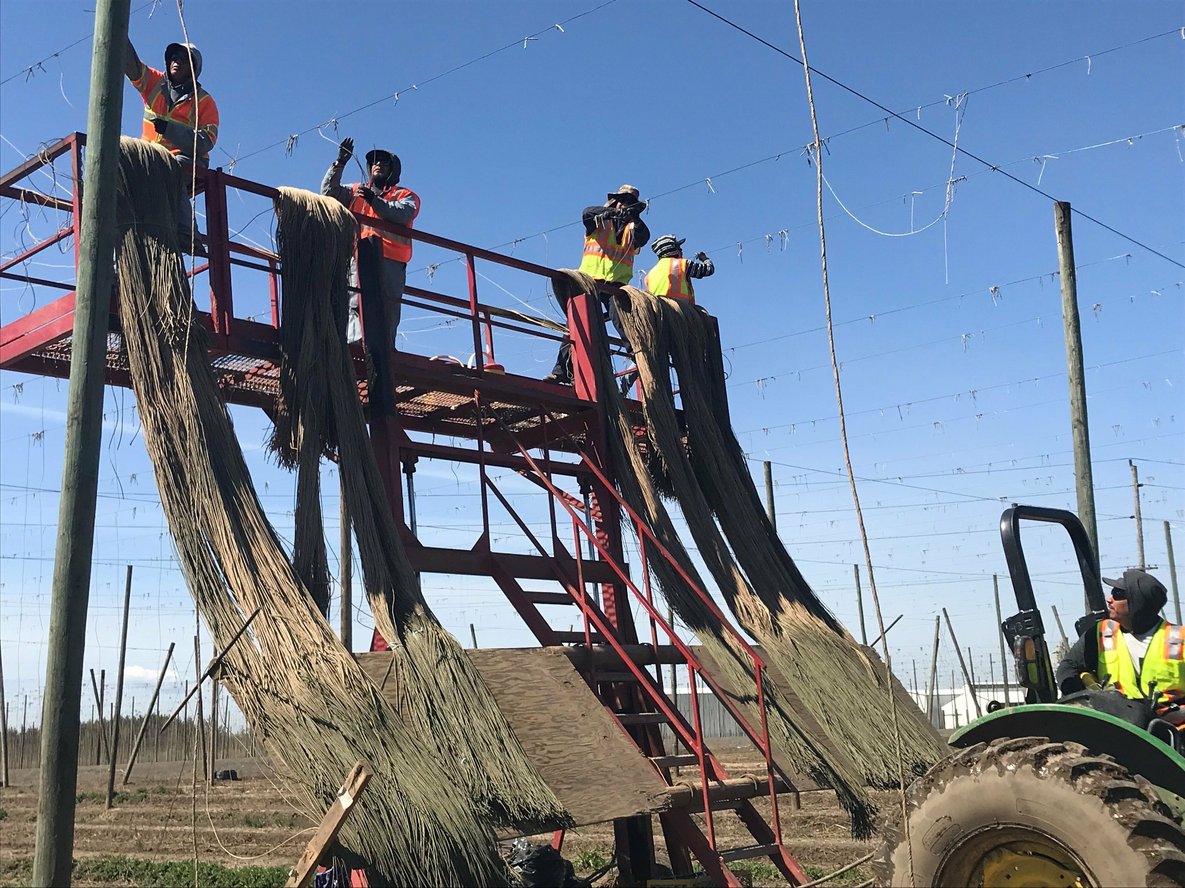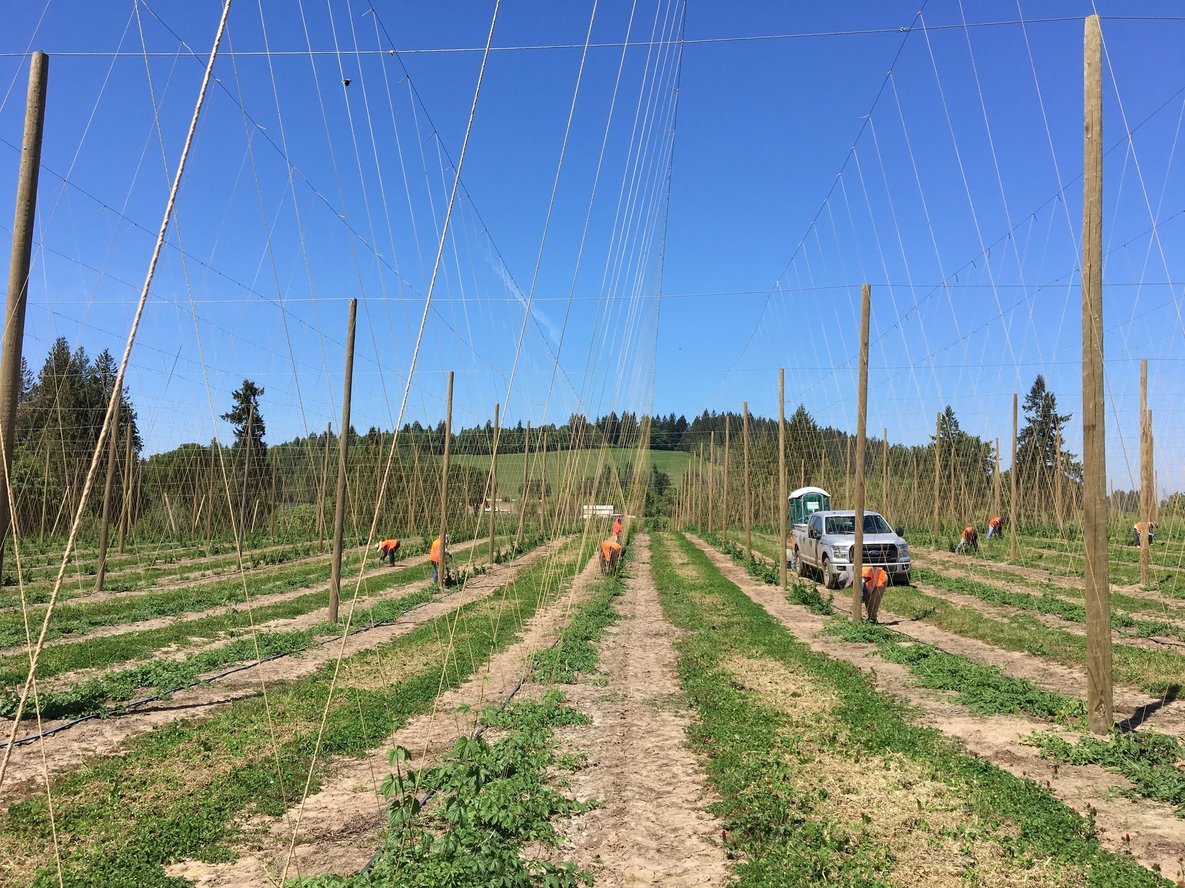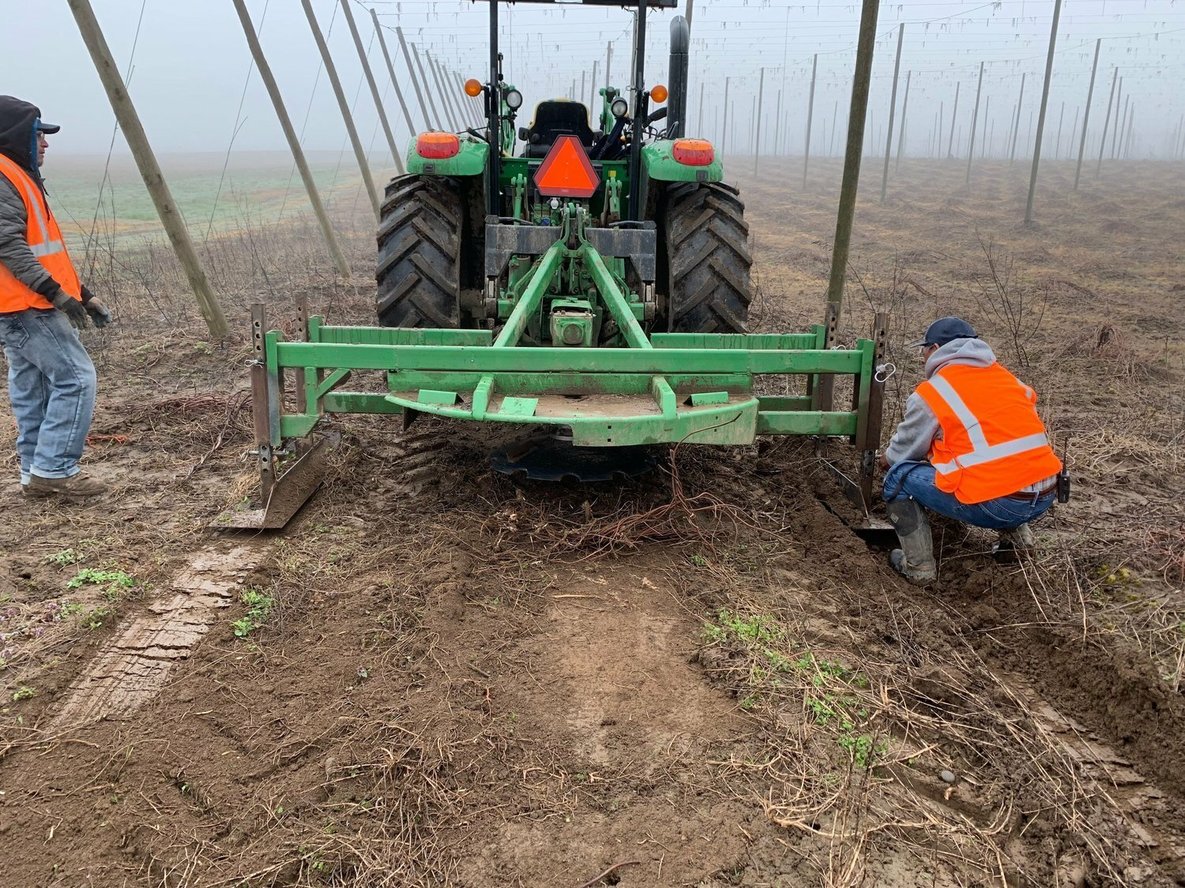By Anne Iskra
2019 Spring Update
Spring pruning is an essential step to producing a high-quality crop. At Crosby Hop Farm we use a method of mechanical pruning called crowning. This thorough, more traditional method is more time consuming and costly than some of the other more modern methods. We continue to use this method because data shows that mechanical spring pruning is the most effective at eliminating any potential disease that has overwintered. While there is more upfront cost, we see the benefits of this method all season long, and in the quality of our cones at harvest. We also make field-by-field decisions as to the pruning timing to ensure that each of our fields and varieties is the highest possible quality.
Stringing is another time-consuming activity that all hop growers must do. Hops need something to climb, so each spring crews take to the field and hand-tie string to the top wire. Following closely behind is a ground crew that secures the string into the ground so the hops have a medium to climb.

Pictured above: Farm crew tying knots for stringing. Below: Securing string into ground.

Once stringing is done the hops are big enough to be trained. Our crews then go through each field and hand train each individual plant, clockwise up the string. The direction is an important detail because hops follow the sun as they grow; if the plants are trained counter-clockwise they will not climb the string. Similar to pruning, the timing of when a hop is trained will impact the season-long growth and quality.
Pictured above: Training a hop plant clockwise to encourage growth up the string.
Fertilizing is another essential step each spring. Hop plants have carbohydrates and nutrients stored in their roots, but with the large amount of foliage that is produced each year they require more nutrients. We sample the soil in all of our fields then work with our local supplier to design custom fertilizer blends based on the results of the soil tests. This allows us to tailor the product we use to each specific season on our farm. This approach optimizes the growth and quality of our hops, while avoiding over applying any one nutrient. Fertility is important to the health of our hops, but it is also important to the health of our soils and environment.
We choose to do the extra tests and labor to do our part in preserving the land that produces our hops. We have been farming this ground for more than 100 years, and in order to continue to farm, we must take into consideration more than just our crop yield and quality.

Pictured above: Mechanical pruning
-Anne Iskra, Agronomist
Check out more Beyond the Box blog posts HERE and stay tuned for additional harvest updates throughout the season. Cheers!